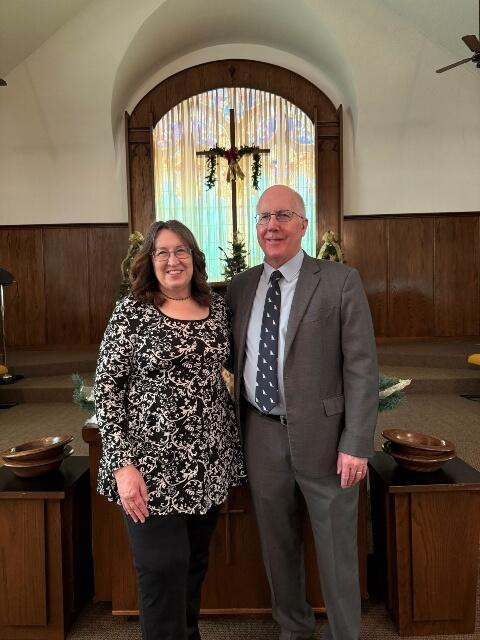Welcome Home
We are guided by traditions and values that shape our identity as The Brethren Church, but we seek to apply these traditions and values in ways that fit our context
Sunday: 8:30 am Coffee & Fellowship
9:00 am Sunday School
10:00 am Worship Service
Wednesday: Bible Study 5:00 pm*
Every Third Saturday of the month:
Breakfast & Fellowship at Don Pablos 8:30 am*
Hours Of Service
*Please check with the church office to confirm the meeting time and date.
Welcome
Pastor Bruce & Linda Wells

CONTEXTUAL BRETHREN LIFE
There are traditions and values that The Brethren Church has that shape our identity, our understanding of God, and our practices. This “Brethren Life” is fundamental to our way of being God’s Church in the world. The Brethren movement was born in Germany in 1708 out of the Anabaptist and Radical Pietist reform movements of the 16th through the 18th centuries. To be “Brethren” is to recognize that God has made us “brothers and sisters” of one another; such a belief marks our fundamentally relational nature as a church (Heb. 2:9-11). Some of our most basic Brethren practices are Trine Immersion Believer Baptism and Threefold Communion (which includes the Lord’s Supper or Love Feast, the Eucharist, and the Service of Feet washing). We refer to these practices as “ordinances;” that is, those practices that the Church was “ordered” to do in the New Testament. Other ordinances the Brethren hold include confirmation by the laying on of hands and anointing the sick with oil.
We maintain a commitment to making decisions through the difficult, yet worthwhile, process of consensus. We also hold to the non-creedal position that marks The Brethren Church. Rather than a creed, we attempt to be faithful to “the Bible, the whole Bible, and nothing but the Bible” as we live out our lives of Christian discipleship. We do this knowing that this book is best understood within the context of Spirit-led Christian community.
There are also historically Brethren values, drawn from the Bible, that are no longer universally held by Brethren, such as non-resistance, non-swearing of oaths, and non-conformity to the world. Although we may not agree on how to apply these values, we do take them seriously and support the practice of these disciplines by our brothers and sisters. We celebrate our Brethren history and heritage and seek to promote our unique way of following the Lord, which we believe is one of our great strengths, and a gift for both the world and us.
We recognize that our Brethren Life is played out in many different contexts, not only in North America, but also throughout the world. We promote a contextual application of our Brethren identity that is sensitive to issues of culture, gender, class, race, language, and age. We don’t easily give up our traditions or practices, even as we seek to adapt them for the place and time our congregations and members find themselves. We attempt to translate our traditions into the idioms and needs of the day. (For example, our congregations may organize their governing structures in a way that is functional, rather than “historically” Brethren, or we may include practices in our congregational worship that aren’t historically Brethren, even as we frame them in Brethren theological language and practice them with a Brethren posture.)
